 Your new post is loading...

|
Scooped by
Farid Mheir
|
Ecommerce continues to make gains among consumers, with more people buying products online than ever before. Indeed, eMarketer recently predicted that worldwide ecommerce sales would total $1.915 trillion in 2016, with $423.34 billion of that coming from North America. And the company forecast double-digit retail ecommerce growth through 2020. Grocery and fresh foods Health and wellness Pet products Artisanal/handcrafted goods Sporting goods Virtual reality

|
Scooped by
Farid Mheir
|
This year’s forecasts will highlight the trends & issues that we think will have major impacts on the retail industry over the coming 12 months.

|
Scooped by
Farid Mheir
|
Automation is happening, and it will bring substantial benefits to businesses and economies worldwide, but it won’t arrive overnight. A new McKinsey Global Institute report finds realizing automation’s full potential requires people and technology to work hand in hand.

|
Scooped by
Farid Mheir
|
The Artificial Intelligence Revolution isn’t around the corner—it’s here. A common remark is that as soon as some new form of AI is possible, it’s no longer AI, it’s just what computers “do”. And while we won’t notice most of AI’s effects in our world, there will be visible signs as digital technology is infused with AI. Through the lens of commerce, it’s easier to see AI’s deep effects as progress continues. Here are a few examples.

|
Scooped by
Farid Mheir
|
My 2016 predictions focused on the shifting world of customer experience. I have viewed experience through a next generation lens, realizing that our interaction paradigms will change considerably in the next five years (conversational systems, ecosystems, virtual reality, augmented reality, etc.). Rather than expand on that theme this year, I am shifting my lens to purpose. At the end of the day, it’s about human well-being. The experiences that business and government create are in some way linked to our own life experiences – and ultimately our well-being. History tells us that we experienced great improvements in the standard of living of developed countries during a special century between 1870 and 1970 – but there has been little change since.

|
Scooped by
Farid Mheir
|
Generation Z (Gen Z), born after 2000, is the first generation not to have known life without technologies and services such as smartphones, iPads, Facebook, Instagram and WhatsApp. Exposure to these technologies and services has influenced this demographic’s broader expectations and behaviors. We have identified three defining attributes of Gen Zers: - Gen Zers tend to attach great importance to personal appearance, in large part because they are the first generation to grow up “in public” online, i.e., documenting their lives on social media.
- The pressures presented by social media are encouraging Gen Zers to spend on leisure services, such as vacations, dining out and going out. This is what we call “the Instagram effect.”
- The on-demand economy, ranging from video-on-demand services such as Netflix to dine-on-demand apps such as UberEATS, is making Gen Z the most demanding, least patient generation ever.
US consumers spent $829.5 billion on Gen Zers in 2015, we estimate. Around $66 billion of that total was spent on discretionary categories, while most of it was spent on essential or semi discretionary categories such as housing, food, clothing and transportation.
Generation Z (Gen Z), born after 2000, is the first generation not to have known life without technologies and services such as smartphones, iPads, Facebook, Instagram and WhatsApp. Exposure to these technologies and services has influenced this demographic’s broader expectations and behaviors. We have identified three defining attributes of Gen Zers: - Gen Zers tend to attach great importance to personal appearance, in large part because they are the first generation to grow up “in public” online, i.e., documenting their lives on social media.
- The pressures presented by social media are encouraging Gen Zers to spend on leisure services, such as vacations, dining out and going out. This is what we call “the Instagram effect.”
- The on-demand economy, ranging from video-on-demand services such as Netflix to dine-on-demand apps such as UberEATS, is making Gen Z the most demanding, least patient generation ever.
US consumers spent $829.5 billion on Gen Zers in 2015, we estimate. Around $66 billion of that total was spent on discretionary categories, while most of it was spent on essential or semi discretionary categories such as housing, food, clothing and transportation.

|
Scooped by
Farid Mheir
|
Raffi Khatchadourian on Nick Bostrom, an Oxford philosopher who asks whether inventing artificial intelligence will bring us utopia or destruction.
Raffi Khatchadourian on Nick Bostrom, an Oxford philosopher who asks whether inventing artificial intelligence will bring us utopia or destruction.

|
Scooped by
Farid Mheir
|
What does 2017 have in store for us? We asked the industry’s experts for their views on the future of web design trends.

|
Scooped by
Farid Mheir
|
The diagnosis is in: healthcare careers top the list of jobs with the highest base salary in the U.S., according to LinkedIn Salary.

|
Scooped by
Farid Mheir
|
2016 was an incredible year for technology, and for humanity. Despite all the negative political-related news, there were 10 tech trends this year that positively transformed humanity. For this “2017 Kick-Off” blog, I reviewed 52 weeks of science and technology breakthroughs, and categorized them into the top 10 tech trends changing our world. I’m blown away by how palpable the feeling of exponential change has become. I’m also certain that 99.999% of humanity doesn’t understand or appreciate the ramifications of what is coming. In this blog, enjoy the top 10 tech trends of the past 12 months and why they are important to you.

|
Scooped by
Farid Mheir
|
We understand if you missed some of these features. Not to worry. Our editors choose a handful of stories that we believe reflect our very best work.

|
Scooped by
Farid Mheir
|
People hated 2016 so much that the year itself became a punchline. But for every grim reminder that things are amiss, we saw people fight for a better future.

|
Scooped by
Farid Mheir
|
Fjord's 2017 Trends EPHEMERAL STORIES: Where next, now that everyone's a storyteller? It is time for brands to give their audience the space to shape their own story. SHINY API PEOPLE: Rewiring for innovation. Breaking down silos to create fertile ground for organization-wide innovation. BLURRED REALITY: As Mixed Reality moves towards the mainstream, let's turn away from single reality experiences to focus on harnessing and combining all types of reality. WORLD ON WHEELS: The focus is now on the car as a connected mobile environment in which things happen via multiple devices. HOMES WITHOUT BOUNDARIES: From the smart home to the helpful home, with services built around and for humans rather than technology and objects. HOURGLASS BRANDS: Don't get stuck in the middle! With a polarized brand landscape, brands sitting in the squeezed middle will need to optimize their strategies in order to survive. ME, MYSELF AND A.I.: Humanizing chatbots, emotional intelligence (EQ) becomes a critical A.I. differentiator. UNINTENDED CONSEQUENCES: Organizations should start to think about social experiences to guard against unintended consequences of their activities.

|
Scooped by
Farid Mheir
|
Amazon is building an app that connects truck drivers with shippers, getting itself into the $800 billion trucking industry.

|
Scooped by
Farid Mheir
|
A motion graphic showing how Amazon’s new shopping experience Amazon Go will work. Simply scan in, take what you want and “Go”.

|
Scooped by
Farid Mheir
|
As we pass 2.5bn smartphones on earth and head towards 5bn, and mobile moves from creation to deployment, the questions change. What's the state of the smartphone, machine learning and 'GAFA', and what can we build as we stand on the shoulders of giants?

|
Scooped by
Farid Mheir
|
Rising demand for bigger yields and higher environmental protection has put pressure on the agricultural sector to “produce more with less”. Smart farming or “farming 4.0.” could hold the key. In Europe, Precision Agriculture (PA) and the integration of digital technology are set to become the most influential trends in the sector, as a growing number of farmers start to adopt digital technologies to run their businesses. According to the machinery industry in Europe, 70 to 80% of new farm equipment sold now has some form of PA component technology inside. There are 4,500 manufacturers, producing 450 different machine types with an annual turnover of €26 billion. The sector also employs 135,000 people.

|
Scooped by
Farid Mheir
|
Facebook AML director Joaquin Quiñonero Candela explains why the social network wants to teach you about AI.

|
Scooped by
Farid Mheir
|
Maths ability will get you furthest, says Harvard's Davis Deming. As long as you've got the social skills to go with it. Could a robot do your job? Millions of people who didn’t see automation coming will soon find out the painful way. The answer is a resounding yes. The World Economic Forum’s Future of Jobs study predicts that 5 million jobs will be lost before 2020 as artificial intelligence, robotics, nanotechnology and other socio-economic factors replace the need for human workers.

|
Scooped by
Farid Mheir
|
The “competency grid” is a promising new tool. By 2020, the US economy is expected to create 55 million job openings: 24 million of these will be entirely new positions. And 48 percent of the new jobs, according to Georgetown’s Center on Education and the Workforce, will emphasize a mix of hard and soft intellectual skills, like active listening, leadership, communication, analytics, and administration competencies.

|
Scooped by
Farid Mheir
|
Explore consumer attitudes and trends about Black Friday retail this year in our latest report. Our pre-Thanksgiving survey polled more than 1,200 consumers across the United States to get a pulse check on their shopping strategy for the long Thanksgiving weekend that includes Black Friday and Cyber Monday. This year 76 percent of holiday shoppers plan to shop over the long weekend, spending an average of $400—that is $31 more than last year.

|
Scooped by
Farid Mheir
|
I recently had the pleasure to meet Pilgrim Beart now the CEO of devicepilot at a TM Forum workshop about the Internet of Everything (IoE) business models and monetization. He shared his story about alert.me an early connected home start up founded in 2006 that was sold in 2015 to British Gas for 100 million €. He said that they were in intensive discussion with three industries: utilities, retail (DIY chains) and Telcos, as he felt for all three of them there was a huge potential to build a platform on top of their core business. Despite trialing and piloting with all three industries only the efforts with Telcos never led to any real-life implementations.

|
Scooped by
Farid Mheir
|
Nearly four of every 10 websites have seen a decrease in traffic over the past three years, according to a new Adobe Digital Insights report.
|

Curated by Farid Mheir
Get every post weekly in your inbox by registering here: http://fmcs.digital/newsletter-signup/
|



 Your new post is loading...
Your new post is loading...




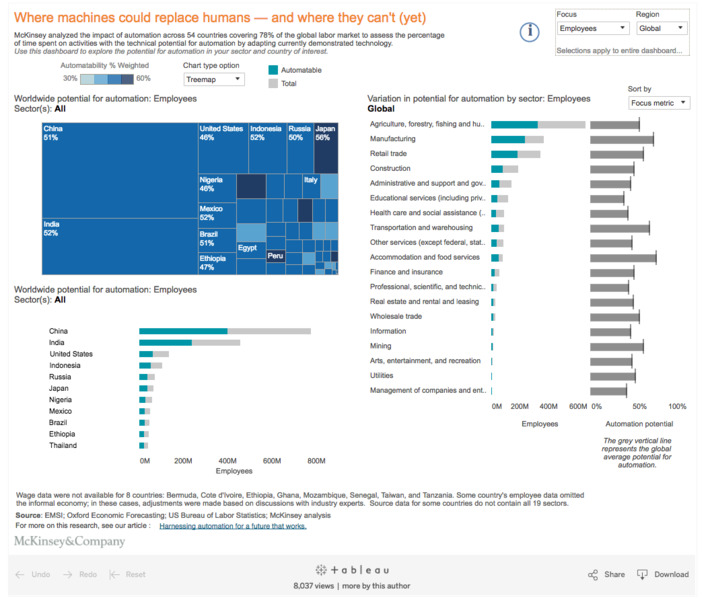
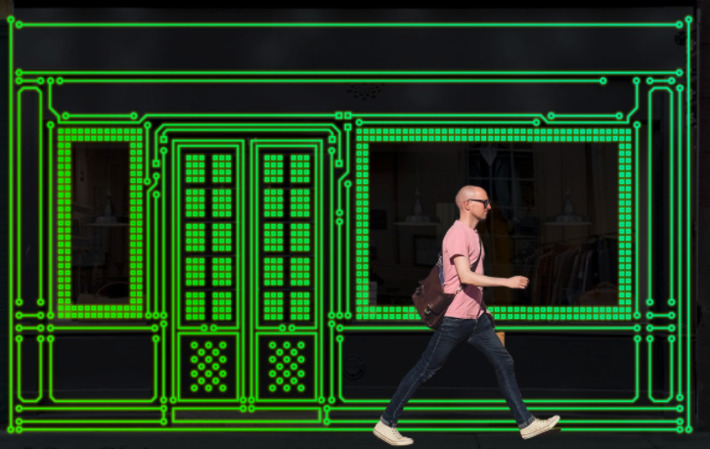
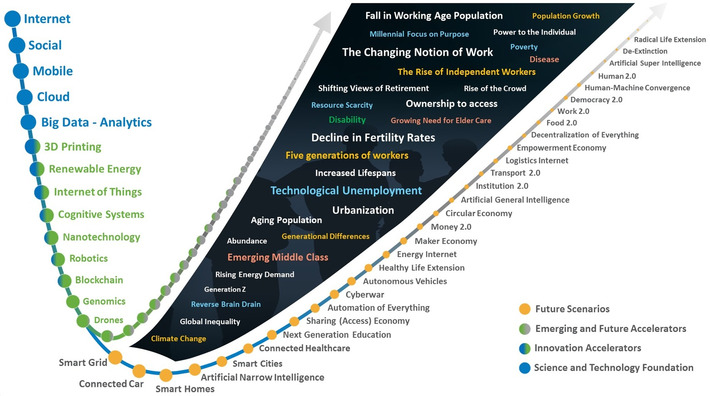
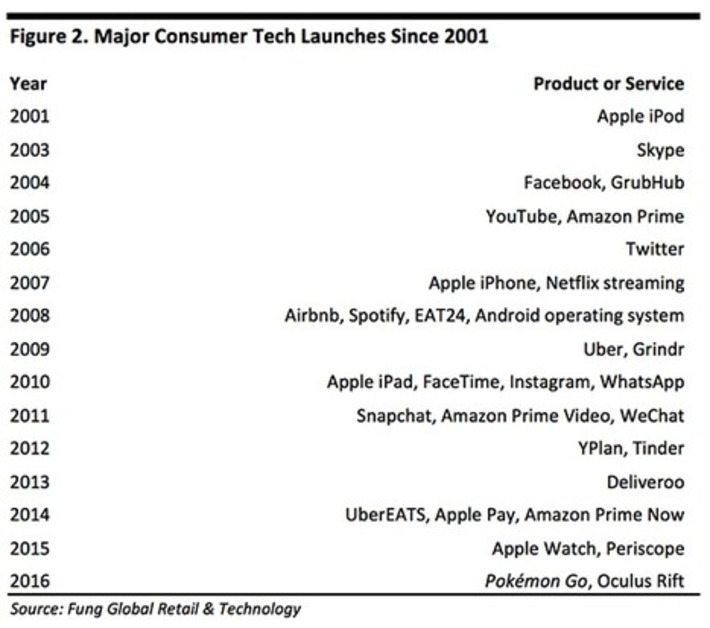


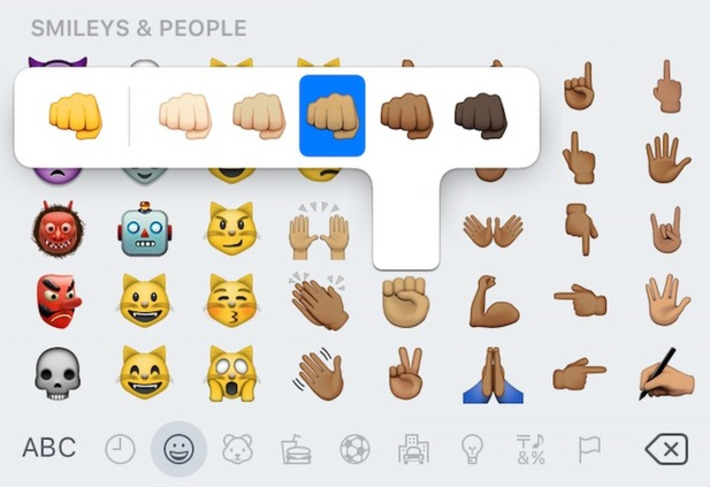

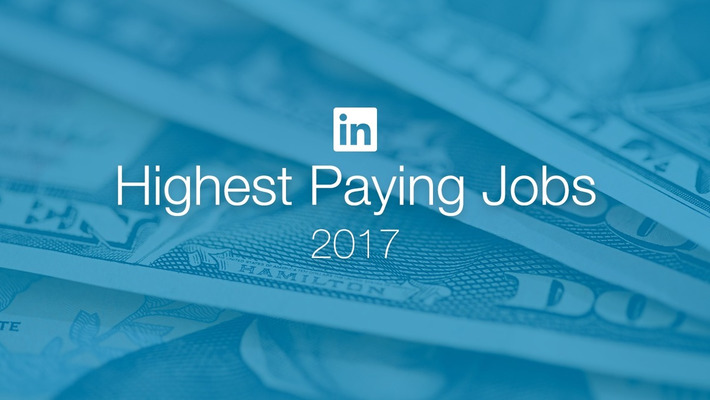

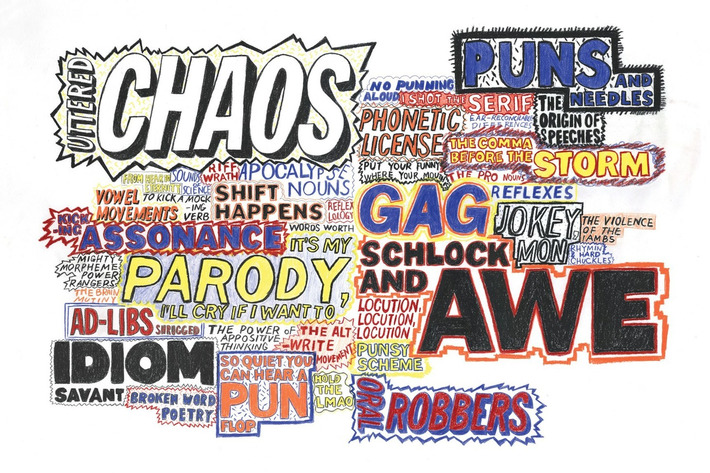
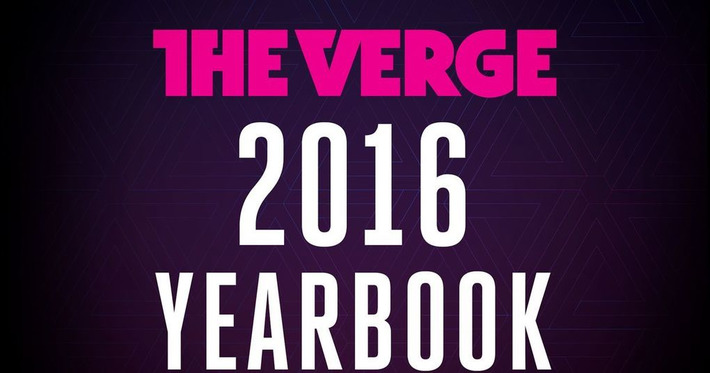
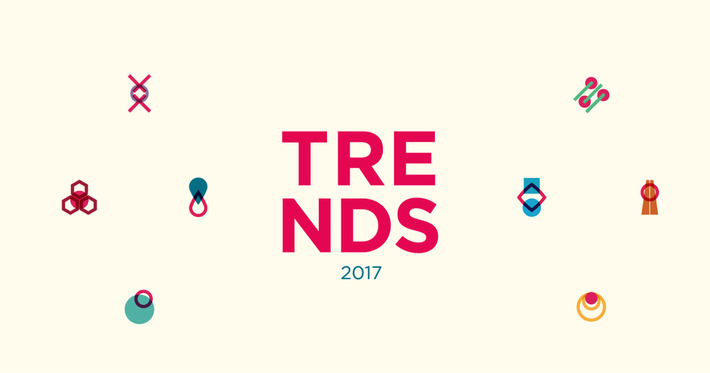

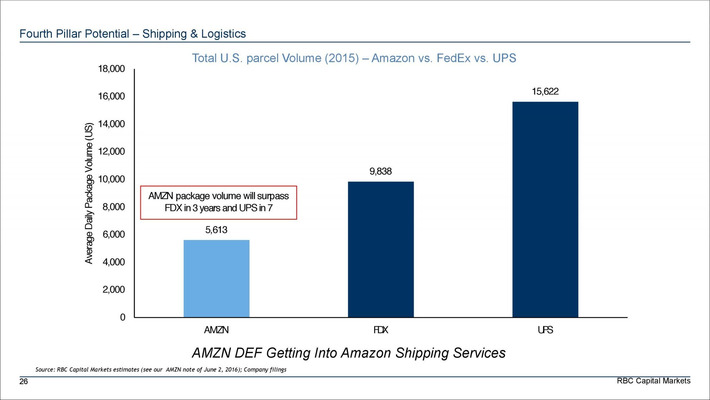

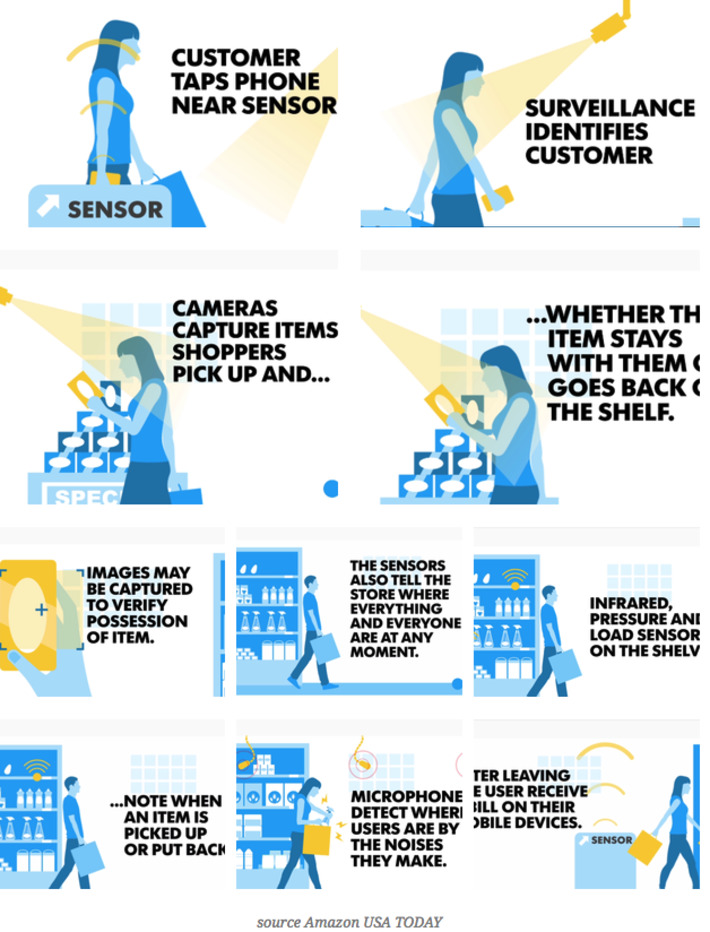
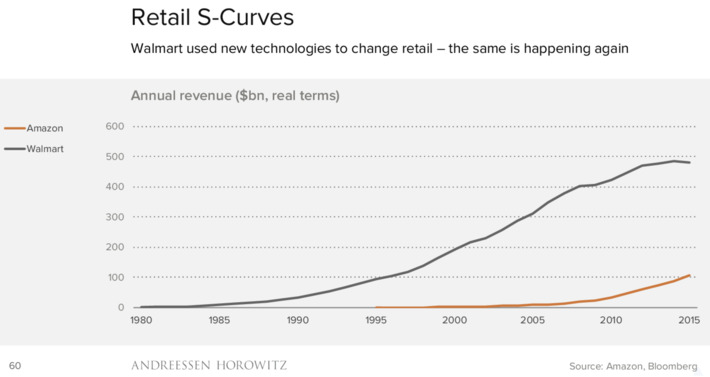

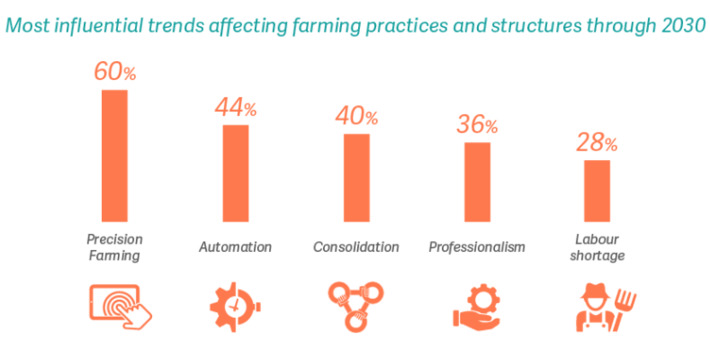


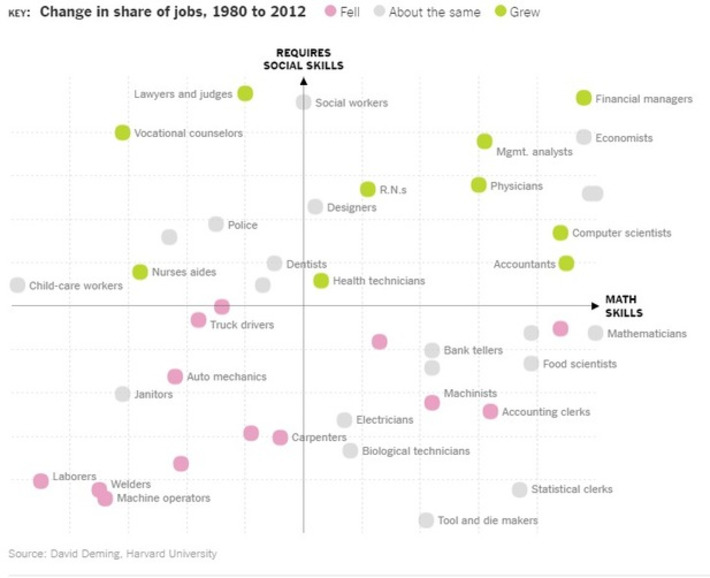

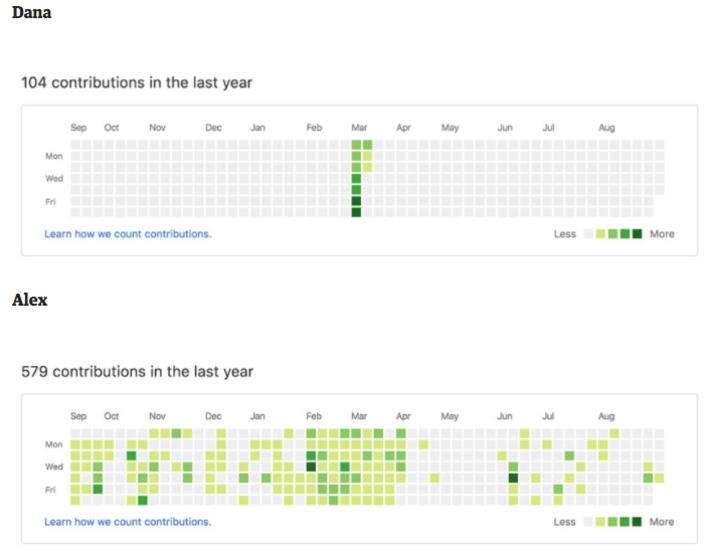
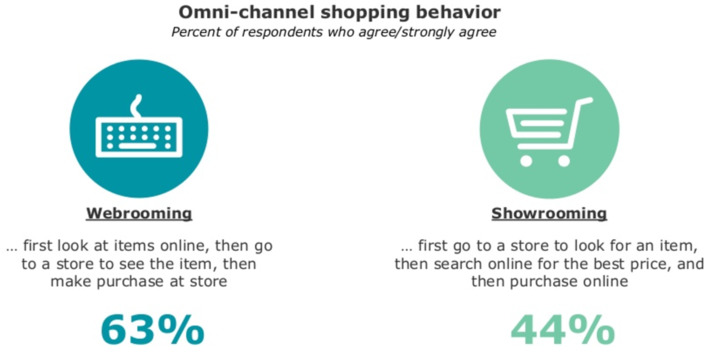
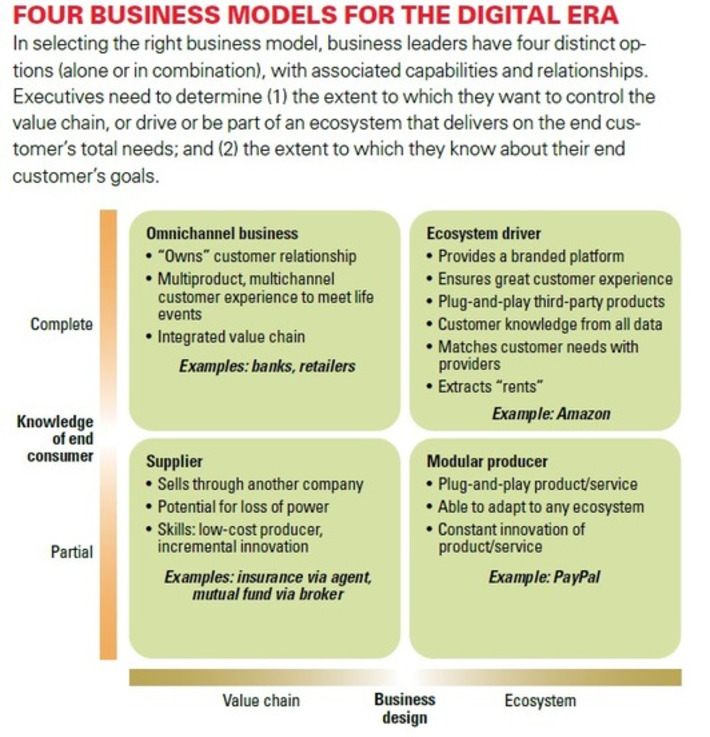
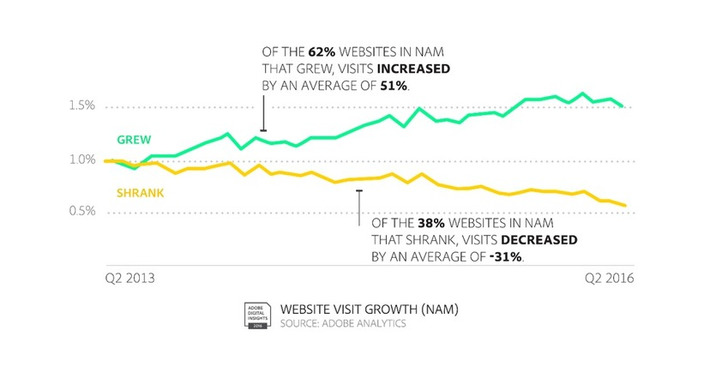









You have to wonder if 2017 will really be the year for online grocery shopping to take off... I've been saying it since 1996, and one year I will be right! ;-)